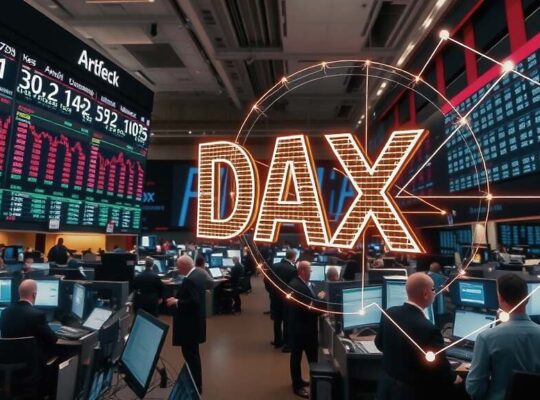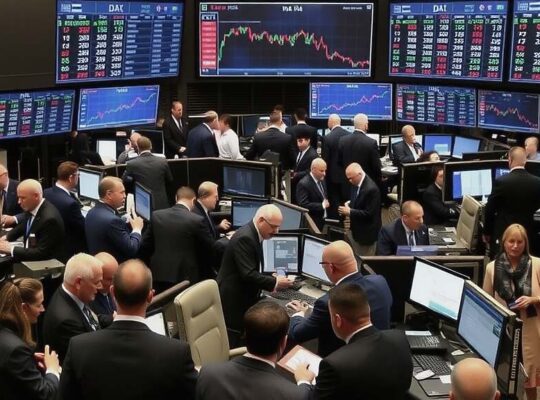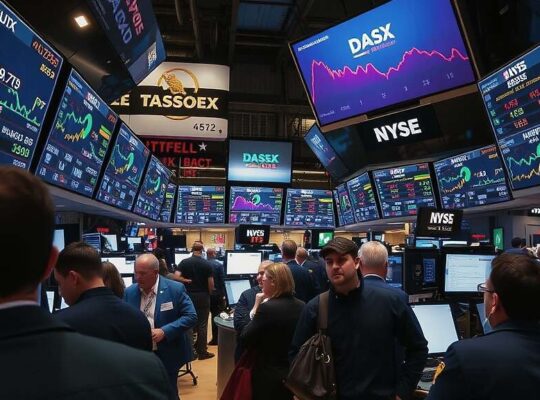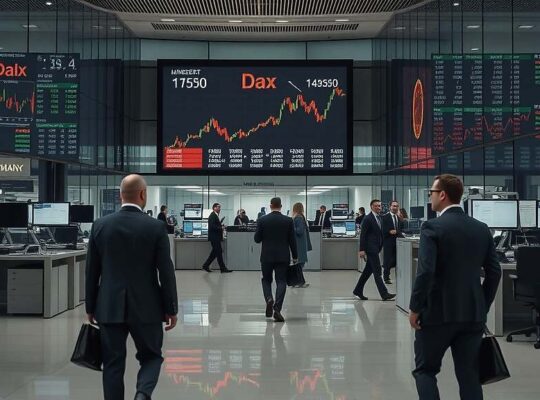The German DAX index opened sharply lower Tuesday, reflecting growing anxieties surrounding global market stability and raising questions about the sustainability of recent rally gains. Around 9:30 AM, the benchmark index was calculated at approximately 23,780 points, a decrease of 1.5% from the previous day’s closing level. While Merck, Beiersdorf and Symrise led the gains, Rheinmetall, FMC and Infineon experienced the most significant losses.
Despite a positive start to the trading week, analysts suggest the DAX remains stubbornly range-bound. “The week’s opening was successful for the DAX yesterday” noted Thomas Altmann of QC Partners. “However, the index continues to struggle for direction. In the second half of the year, the DAX has largely tracked sideways, with a marginal gain of just 0.9 percent. Out of 90 trading days so far this year, 46 have been positive and 44 negative – a prolonged sideways market actively searching for direction.
This indecision is amplified by palpable nervousness across Asian markets, signaling a potential pause in a rally that some have described as “impressive and even alarming”. Rising implied volatilities are further supporting this cautious sentiment, suggesting market participants are bracing for increased uncertainty. The volatility index for the South Korean KOSPI 200, for instance, sits at 35.5 – its highest level since the trade turbulence of April, indicating a heightened sense of risk.
Warnings about inflated valuations and the potential for a correction are steadily escalating. Altmann highlighted the concerning trajectory of the Nasdaq 100, with a price-to-earnings ratio currently standing at 35 – a significant 11 points above the 15-year average. He drew a cautionary parallel to late 2021, prior to the challenging market conditions of 2022. This comparison underscores the possibility of a similar reversal, prompting investors to reassess their positions.
The euro experienced a slight strengthening against the dollar, trading at $1.1524, though the move is unlikely to substantially alter the broader macroeconomic anxieties. Concurrently, the price of Brent crude oil declined to $64.28 a barrel, a drop of 61 cents or 0.9 percent, furthering the sense of a potential shift in market dynamics.
The muted performance of the DAX and the cautious outlook suggest investors are beginning to question the logic behind the recent surge, potentially driven by a misplaced faith in sustained economic growth and an underestimation of geopolitical risks. Whether this signifies a temporary correction or a more fundamental shift in market sentiment remains to be seen, but the prevailing caution is undeniably impacting trading activity.












